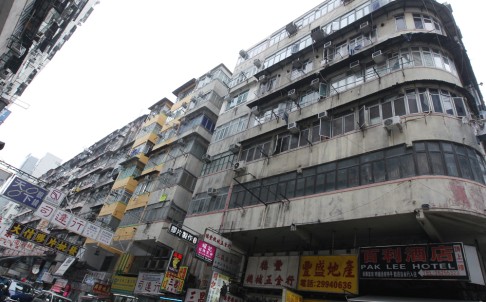- Joined
- Aug 2, 2012
- Messages
- 353
- Points
- 0
Rising rents taking biggest toll on the poor
Survey finds city's lowest earners spend nearly two-thirds of their income on housing
PUBLISHED : Monday, 24 March, 2014, 5:26am
UPDATED : Monday, 24 March, 2014, 10:27am
Lo Wei [email protected]

At 59, Chiu Man-sun has found himself sleeping in fast-food restaurants and internet cafes, forced by rent increases to abandon his 200 sq ft subdivided flat.
A few years ago, when the landlord asked for HK$3,200, up from the HK$2,700 he had been paying, Chiu realised his income wouldn't stretch that far, and he began looking for an alternative.
"After the rent increase, it took up almost half of my monthly income. I couldn't stand it so I had to move out and find another place," he said.
He found a cheap bed space for rent but said the living conditions were appalling, so he left, preferring to roam the streets.
He is now working as a cleaner and staying at the Salvation Army's temporary hostel. He will have to move out in a few months and he is not optimistic about finding an affordable place.
"I hope the government reintroduces rent control," he said.
He is planning to apply for public housing once his wife, who is from the mainland, is issued a permit to join him in Hong Kong, but they expect to wait at least several years before being allocated a flat.
Chiu is among a group of people termed "N-nothings" who are not recipients of social security assistance or public housing.
The Salvation Army interviewed 127 such people in December and January and found that the average monthly rent they paid was HK$3,000, a jump from the HK$2,700 recorded in an "N-nothings" survey conducted a year ago.
The interviewees on average spend 62 per cent of their income on rent, 28 per cent on food, and the rest on transport, clothes and other necessities.
Of the 20 interviewees who had changed accommodation in the past year, 90 per cent paid more in rent after the move but only 20 per cent moved to a bigger place. When asked about their reason for moving, 47 per cent said the landlord took back the flat, while 21 per cent said it was due to a rent increase.
More than 80 per cent of the survey participants said reintroducing a rent control policy and a regular low-income subsidy would be the most effective way to help them make ends meet.
One interviewee, a single mother who came to Hong Kong from the mainland with her eight-year-old daughter two years ago, lives in a wooden house on a hillside in Tai Wai, which costs HK$1,700 a month.
They share a bathroom and kitchen with six other households. There are rats as large as cats and the place floods in heavy rain, she said. But she does not have the money to rent anywhere else.
"I hope we'll soon have a safe and clean room, and be allocated a public housing flat," she said.
